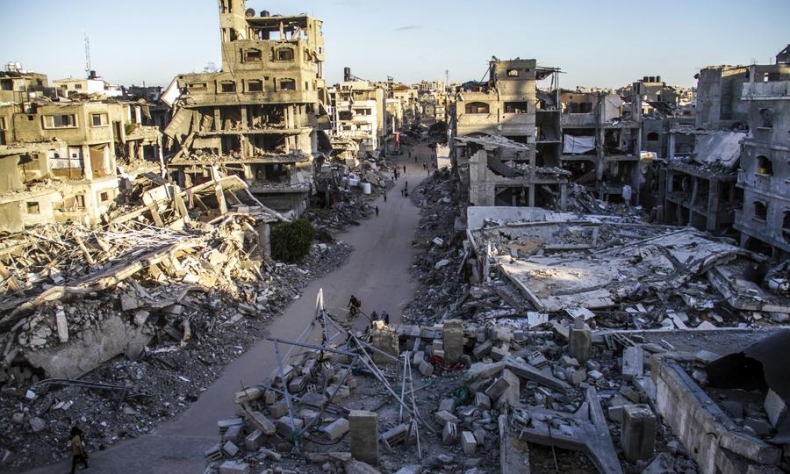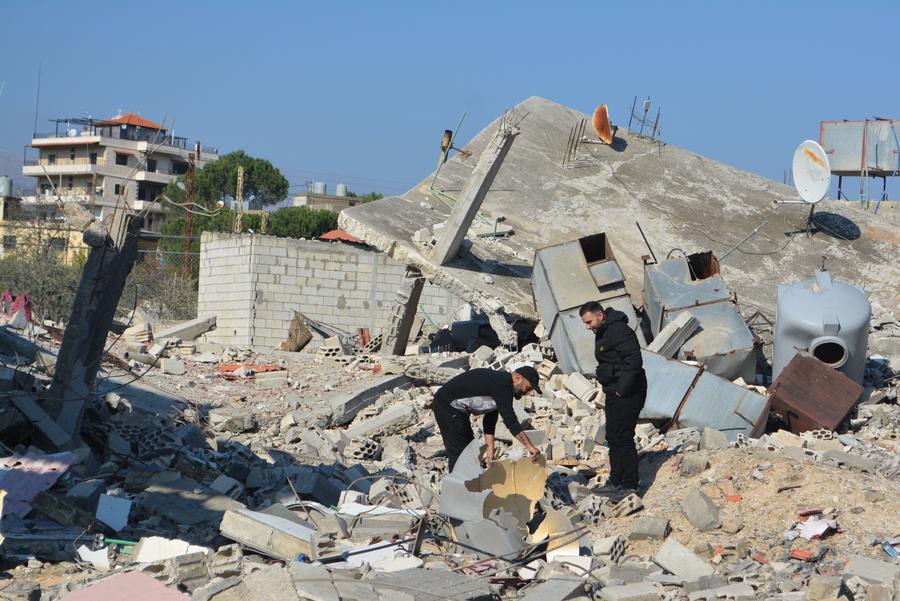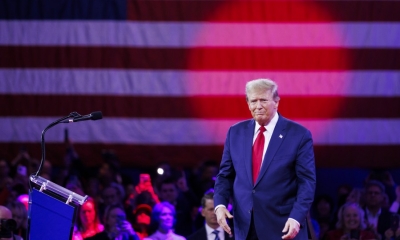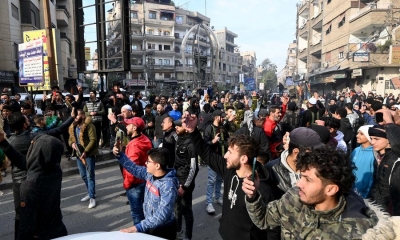The Middle East Crisis Widens

Washington must take a broad view of the Middle East region and implement a balanced policy so as to promote peace and not fan the flames of war.
The dramatic flare-up in Syria marks a new stage of intensity of the Middle East crisis which began with the tragic events of October 7 last year. The strategic situation now has changed at the regional and global level. Will a wider war in the Middle East lead to world war?
The situation is complex and complicated. Developments must be viewed in regional context that includes the Arab states, Israel, Türkiye, and Iran. Additionally, developments in this strategic region must take into account the global context and great power interests.
Over the past year, Israel unleashed a devastating war in Gaza and increased pressure on the West Bank through land seizures and other measures. Palestinian resistance forces assisted by Hizbollah which is based in southern Lebanon have made a determined stand.
Israel in recent weeks expanded its operations into Lebanon with a violent air campaign and ground operations. The air campaign included bombing civilian targets in Beirut as well as many other civilian targets across the country. While the Lebanese government and ground forces remained passive, Hizbollah reacted by defending southern Lebanon and by intensifying its rocket attacks against Israeli military targets.
Hizbollah’s staunch resistance blunted the Israeli ground attack and caused severe losses to the invading forces. Although Israeli forces successfully destroyed Lebanese border villages and civilian targets as well as some Hizbollah forces, Israeli losses were significant.
Given Israeli personnel losses, a “ceasefire” was desired. The so-called ceasefire was a temporary truce in fact. But even this temporary truce reportedly has been violated by the Israeli side many times already. So, it is tenuous at best.

Western regime change policy against Syria
Syria has been a target of the United States and NATO since 2011. The objective of Western actions against Syria is the overthrow of the Assad Government and its replacement with a pro-West regime. Washington’s policy remained consistent through the Obama, Trump, and Biden administrations.
Western hostility and designs against Syria derive from its strategic position in the Middle East. Because Syria plays a key role in the pro-Palestinian regional “Resistance” against Israel, the West aims at regime change in Damascus. Syria’s role as a pillar of the Resistance involves its support for various Resistance organizations which include Hizbollah. Syria is the geographic bridge for weapons and other support from Iran to Hizbollah which is based in southern Lebanon.
Because the United States and NATO see Israel as the West’s instrument for regional hegemony, unconditional support for Israel from Washington, London, and Paris is not surprising.
From a geopolitical perspective, however, such unlimited Western support for Israel has drawbacks. As noted earlier, the overall regional context must be taken into account. Thus, Israel is not the only key factor in the region. There are the Arab states, Türkiye, and Iran to be considered. How to have a balanced overall regional policy is the challenge.
Türkiye backs Jihadi onslaught in Syria
Since 2011, the United States and NATO have used various radical Islamic proxies in the region to undermine Syria. The use of such proxies is not new to Western strategy. Back in the late 19th and early 20th centuries both Britain and France facilitated radical Islamic networks in Egypt and across the Middle East. The United States became a party to this game through the tutelage of Britain post-World War II.
It is not surprising that reports in recent days point a finger at Türkiye for coordinating the jihadi attack on Aleppo and other areas of Syria with Israel and Western countries. Türkiye occupies portions of northwestern Syria and is a patron to a number of extremist Islamic terrorist organizations based in the Syrian town of Idlib.
Back in 2015, Russia intervened militarily in Syria to assist the Assad government defend Syria against various rebel forces and terrorist organizations. Syria was able to stabilize the situation but the country remains occupied by Türkiye in the northwest and by the United States in the east.
While the situation was stabilized with Russian assistance, Syria still did not liberate itself from foreign military occupation and economic exploitation. The anti-government organizations remained under Turkish and United States protection inside Syria. Idlib became a key base.
Something of a standoff and frozen conflict thus was achieved and various agreements between Türkiye, Russia, and Syria were undertaken. But Türkiye just upset the apple cart, vitiating any agreements it had made.

Türkiye is expected to diplomatically deny having anything to do with the present flare-up. Iran, of course, emphatically supports Syria. Meanwhile, Arab states such as Saudi Arabia, Egypt, and the UAE remain ambiguous on the situation in Syria. Thanks to the reconciliation between Saudi Arabia and Iran, Arab states have gradually restored relations with Syria. So, the situation today is much different. Regional states want peace and development, not war.
So, Türkiye is now isolated from any regional consensus. Has Türkiye made a fundamental strategic mistake?
To some observers, Türkiye has overreached with its support for an extensive military operation against Syria. Russia is compelled to step into the fray to defend its position in the Middle East and its naval and air facilities in Syria. Iran certainly will do all in its power to assist Syria because if Syria falls Tehran well knows that it is next on the Western hit list.
Already, considerable ground forces from Iran and Iraq have reportedly entered Syria. Russia has immediately launched a powerful air campaign. No doubt this air campaign will become increasingly severe and thereby assist the ground campaign by the Syrian army and allied forces from Iran and Iraq. It is reported that some Hizbollah forces have also entered the fray.
Wider Middle East War ahead?
Will the current situation spiral out of control into a wider Middle East war or will it be contained?
Arguably, the frozen conflict in Syria has now melted. Türkiye is blamed for disregarding understandings and red lines that have been in place to stabilize Syria. Of course, it is not realistic to believe that a frozen conflict will always remain frozen. Flare-ups and worse are possible and this is the present situation.
The situation is more unpredictable owing to the present government transition in the United States from the Biden administration to the incoming Trump administration. President-elect Donald Trump to his great credit promised the American people during his campaign that he wants to see peace in the Middle East and in Ukraine. Public opinion polls show that the American people want to see peace and this meant increased support for him at the election.
Trump, however, will not take office until January 20, 2025 when he is inaugurated. Thus, there are a few weeks ahead filled with uncertainty. Although it is said that Trump appointments to his cabinet and to foreign embassies appear very “pro-Israel”, we will have to await developments to see what policies he will pursue once he becomes president.
Washington must take a broad view of the Middle East region and implement a balanced policy so as to promote peace and not fan the flames of war.
The article reflects the author’s opinions, and not necessarily the views of China Focus.
 Facebook
Facebook
 Twitter
Twitter
 Linkedin
Linkedin
 Google +
Google +







